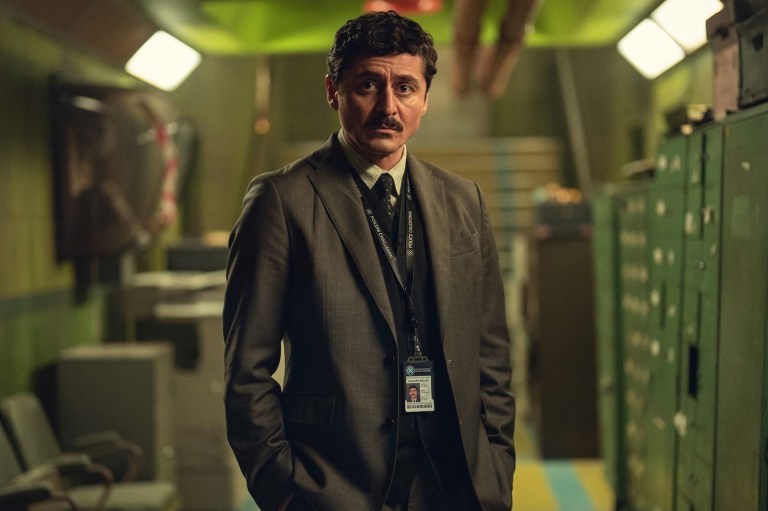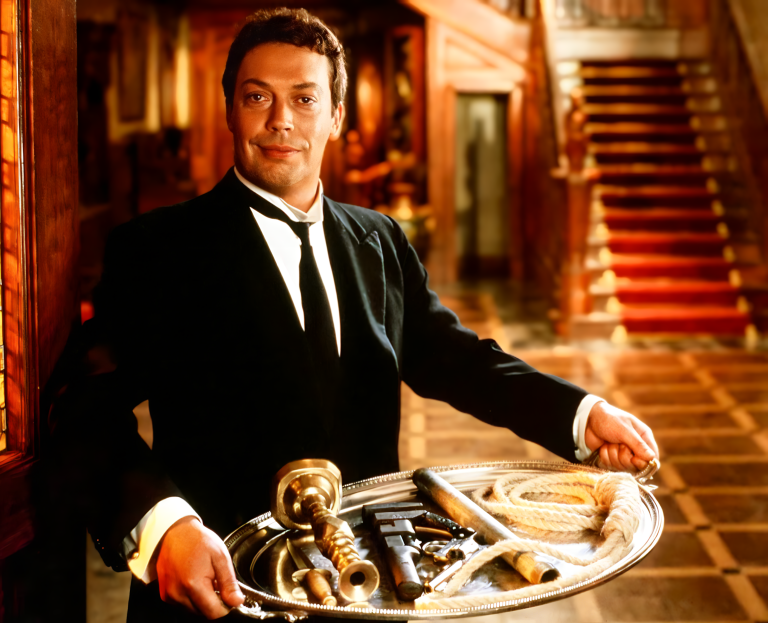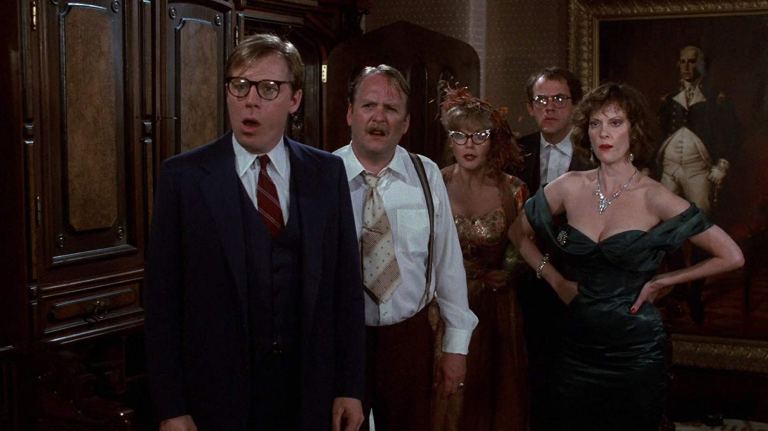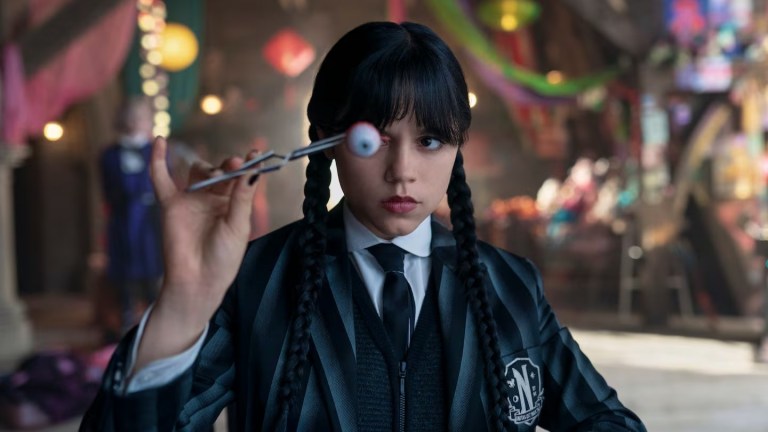
Agatha Christie's Top 10 Racist Moments
Recently, I have worked my way back through my (embarrassingly complete) Christie collection, and Ohmygod guess what? Agatha Christie was a huge racist!
Like most other Anglo-Colonial Indian kids, I grew up on bread and butter English authors: Enid Blyton, Beatrix Potter, P.G. Wodehouse, the Victorian stalwarts, and — of course — the grande dame of British mystery, Agatha Christie. When we immigrated to the States, some of my literary tastes changed, but I always preferred Christie to her transatlantic counterparts. Something about her quiet, wry setups, the Edwardian charm of country houses and dressing for dinner, secretive dramatis personae, well-plotted threads and twisty revelations — were very appealing, especially because the milieu was so different from my own. I devoured pretty much everything she wrote. My misspent youth.
Recently, I have worked my way back through my (embarrassingly complete) Christie collection, and Ohmygod guess what? Agatha Christie was a huge racist! I sort of knew this already. There are the obvious things (for example, her famous novel Ten Little Indians was originally published as Ten Little Niggers). But then there is the current of bigotry throughout almost all of her other work. How did I overlook this before? My childish eye managed to gloss over the many examples and shades of orientalism and racism that my adult postcolonial self simply cannot. Cristina Odone apparently had a similar revelation. Rereading Christie has been pleasurable — even though I’ve read them before, I can still never predict those twisty mysteries — but now I can’t help but notice her underlying prejudice, and fall out every time.
And so I give you, Agatha Christie’s Top Ten Orientalist Moments, selected by me:
10) “This girl was different. Black hair, rich creamy pallor — eyes with the depth and darkness of night in them. The sad proud eyes of the South… It was all wrong that this girl should be sitting in this train among these dull drab looking people — all wrong that she should be going into the dreary midlands of England. She should have been on a balcony, a rose between her lips, a piece of black lace draping her proud head, and there should have been dust and heat and the smell of blood — the smell of the bull-ring — in the air.”
– A Holiday for Murder, 1939
9) “Until she spoke he had not realized that she was not English. Now, observing her more closely, he noticed the high cheekbones, the dense blue-black of the hair, and an occasional very slight movement of the hands that was distinctly foreign. A strange woman, very quiet. So quiet as to make one uneasy.”
– The Witness for the Prosecution, 1925
8) “Zeropoulos spread out a pair of Oriental hands.”
– Death in the Air, 1935
7) “‘African chiefs have the most polished manners,’ said her father, who had recently returned from a short business trip to Ghana.
‘So do Arab sheiks (sic)’ said Mrs. Sutcliffe. ‘Really courtly.’
‘D’you remember that sheik’s feast we went to?’ said Jennifer. ‘And how he picked out the sheep’s eye and gave it to you, and Uncle Bob nudged you not to make a fuss and to eat it?’”
– Cat Among Pigeons, 1959
6) “‘Seventeen years is a long time,’ said Poirot thoughtfully, ‘but I believe that I am right in saying, Monsieur, that your race does not forget.’
‘A Greek?’ murmured Papopolous, with an ironical smile.
‘It was not as a Greek I meant,’ said Poirot.
There was a silence, and then the old man drew himself up proudly.
‘You are right, M. Poirot,’ he said quietly. ‘I am a Jew. And, as you say, our race does not forget.’”
– The Mystery of the Blue Train, 1928
5) “Victoria Johnson rolled over and sat up in bed. The St. Honoré girl was a magnificent creature with a torso of black marble such as a sculptor would have enjoyed. She ran her fingers through her dark, tightly curling hair.”
– A Caribbean Mystery, 1965
4) Prince Ali Yusuf of Rabat: “‘But we are not savages! We are civilized nowadays.’
‘There are different kinds of civilization…’ said Bob vaguely. ‘Besides — I rather think we’ve all got a bit of the savage in us — if we can think up a good excuse for letting it rip.’”
– Cat Among Pigeons, 1959
3) “‘The hand of Fatma has been seen as you foretold. This type here, he will tell you about it.’
‘This type’ was a particularly wild-looking Berber…
‘It is a notable Arab superstition. It is painted often on carts and wagons. It would only be thought that some pious Moslem (sic) had painted it in luminous paint on his vehicle.’”
– Destination Unknown, 1954
2) “It was the workmen that made me laugh. You never saw such a lot of scarecrows — all in long petticoats and rags, and their heads tied up as though they had toothache. And every now and then, as they went to and fro carrying away baskets of earth, they began to sing — at least I suppose it was meant to be singing — a queer sort of monotonous chant that went on over and over again. I noticed that most of their eyes were terrible — all covered with discharge, and one or two looked half blind…
– Murder in Mesopotamia, 1935
1) ‘By the way, when I said fair, I only meant fair for an Iraqi. I expect nurse would call that dark.’
‘Very dark,’ I said obstinately. ‘A dirty dark-yellow colour.’”
– Murder in Mesopotamia, 1935
Murder in Mesopotamia, a not-very-good mystery set on an archaeological dig between the Tigris and Euphrates, featuring an international cast of Europeans and their ‘dirty dark-yellow’ Arab flunkies, carries away top honors for its unmitigated prejudice and particularly coarse language. Also, I just don’t like the story. Now, this is not to impose an anachronistic standard of political correctness on Agatha Christie. A look through much of the writing of her day would yield many similar examples of casual racism. And further back, well! If Christie is a purveyor of racist mystery, then Arthur Conan Doyle is the godfather of criminal prejudice. One of the most famous, and, I confess, one of my favorite Sherlock Holmes mysteries, The Sign of Four, practically drips with Anglo-Indian imperialism and clichés about the mystery, exoticism, and perfidy of the East.
We relegate Conan Doyle to his time, however, and there is an intrinsic understanding — as when one reads any piece of writing from another era — that these standards and values belong to it. Christie, however, is close enough to our own time to make her Orientalist undercurrent far more troubling — some of the worst examples on the countdown above were published in the ‘50s. More frightful, I was one of the colonial inheritors of such prejudice. I didn’t even flinch at its presence. I grew up on it. I loved those books. Does this mean I will no longer enjoy Christie? No — she’s still one of the best mystery writers around. But to adopt some subaltern rhetoric, it’s time for a re-self-definition. Will the awareness of her racism blunt my enjoyment? I sure hope so. ![]()











